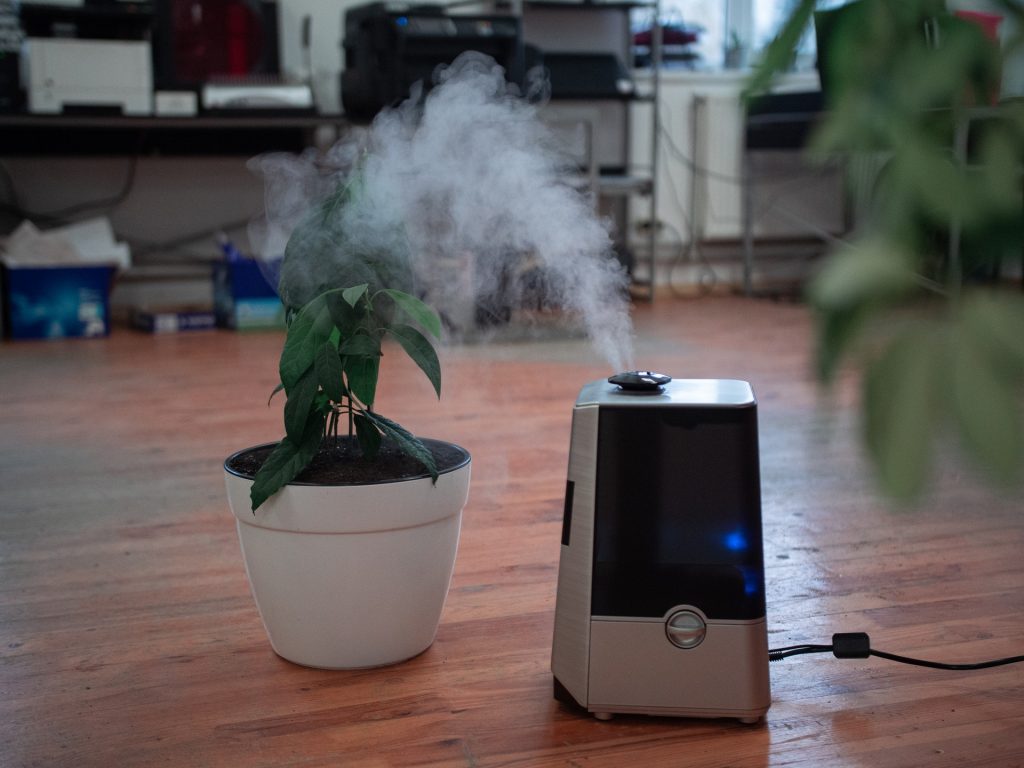
5 Tips for Improving the Air Quality in Your Bedroom
When you think of the typical factors that can disrupt sleep, it's likely that air quality isn't one of the first things that springs to mind. While the likes of noise, caffeine, alcohol, and being too hot or cold probably make the list, it's easy to overlook the air that we breath and how it impacts our rest.
When you think of the typical factors that can disrupt sleep, it's likely that air quality isn't one of the first things that springs to mind. While the likes of noise, caffeine, alcohol, and being too hot or cold probably make the list, it's easy to overlook the air that we breath and how it impacts our rest.
How does air quality affect sleep?
Indoor air quality (IAQ) is a health concern that is getting more attention as we understand its effect on us. The US Environmental Protection Agency has pointed to a growing body of research that has found the quality of air indoors is actually worse than outdoors. In addition, the Asthma and Allergy Foundation reported that a bedroom can often have the worst IAQ in a house, compounded by the fact that we typically spend around a third of our lives in them.
When there are pollutants like particulate matter and harmful gases present in our bedrooms, our sleep can be impacted in many ways. For one, there's the way that poor IAQ can affect your airways, with the risk of upper airways being congested and even of sleep apnoea (study). Polluted air is also linked to the development of breathing conditions, like asthma (Asthma UK), which can have a negative impact across your life, including sleep. One study even found that people who were more exposed to pollution were more likely to suffer mentally, an area that is closely linked to sleep.
What can you do to improve bedroom air quality?

Thankfully, there are a few things you can do to improve the IAQ in your bedroom. Here are five tips that will help you breathe easier at night.
Clean it regularly
A bedroom that is as clean as possible will have less dust, dirt, and pet dander in it, all of which can adversely affect breathing and allergies. Now, it goes without saying that you probably already keep your bedroom clean and tidy, but it may be worth increasing the frequency of your regimen, as well as focusing on hotspots for particulate matter build-up.
You should aim to vacuum carpets and rugs at least once per week with a vacuum cleaner fitted with a HEPA filter, which is the most effective on the market. Try to regularly wash soft furnishings, such as bedding, curtains, and throws, at a setting that is at least 50 degrees (check washing instructions beforehand). Our blog post on good bed hygiene and our mattress care guide are worth a read, too.
Add some air-filtering plants
A famous NASA study found that many common houseplants, including spider plants, peace lilies, and Aloe vera, are quite effective at filtering air of impurities and outputting heightened levels of oxygen. The research recommended one plant per 10m². Therefore, by adding some of these species to your bedroom, you could benefit from cleaner air, as well as enjoy the mood-boosting effect a little greenery can have.
Invest in an air purifier
One investment that might be worth making is an air purifier. These devices are capable of cleaning the air in a room by removing contaminants, which makes them especially useful if your bedroom is prone to the likes of mould or dust mites. This round-up of air purifiers from independent review site Expert Reviews might help you choose a model if you find yourself in the market for one. It also gives recommendations to suit small, medium, and large rooms.
Make your bed as anti-allergy as possible
While we've mentioned keeping your sheets clean is an effective way of reducing harmful particles, you can also take some preventative purchases that will help to keep your bed hygienic and, as a result, your IAQ as high as possible.
One of the best investments you can make is buying a mattress protector that is anti-allergy and has advanced sleep hygiene technologies built in. For instance, our Aloe vera and Silver protectors each make use of their respective material's natural qualities to reduce microbes present in your bed. We even stock mattresses that incorporate Silver and Aloe vera to the same effect.
Balance your humidity levels
Humidity is another factor that heavily impacts your sleep. In a very humid bedroom, you may find it difficult to sleep and end up tossing and turning with that horrible "sticky" feeling. These conditions are also perfect for mould and dust mites to thrive, which are very common contaminants for IAQ.
To avoid having a bedroom that is too humid, there are a few steps you can take. Firstly, it's vital to circulate air regularly, so make sure you keep your doors and windows open for a while every few days to ensure fresh air has a chance to replace the air that's been trapped. You should also avoid drying wet clothes in your room, as the moisture particles can contribute to the high humidity. It may also benefit you to invest in a dehumidifier that can remove excess water from the air.
It's important to improve the air quality in your bedroom. And, if you do, you will likely experience better sleep and health. You can stay up to date with the latest sleep related developments on the Dormeo blog or in our advice centre.








Leave a Reply